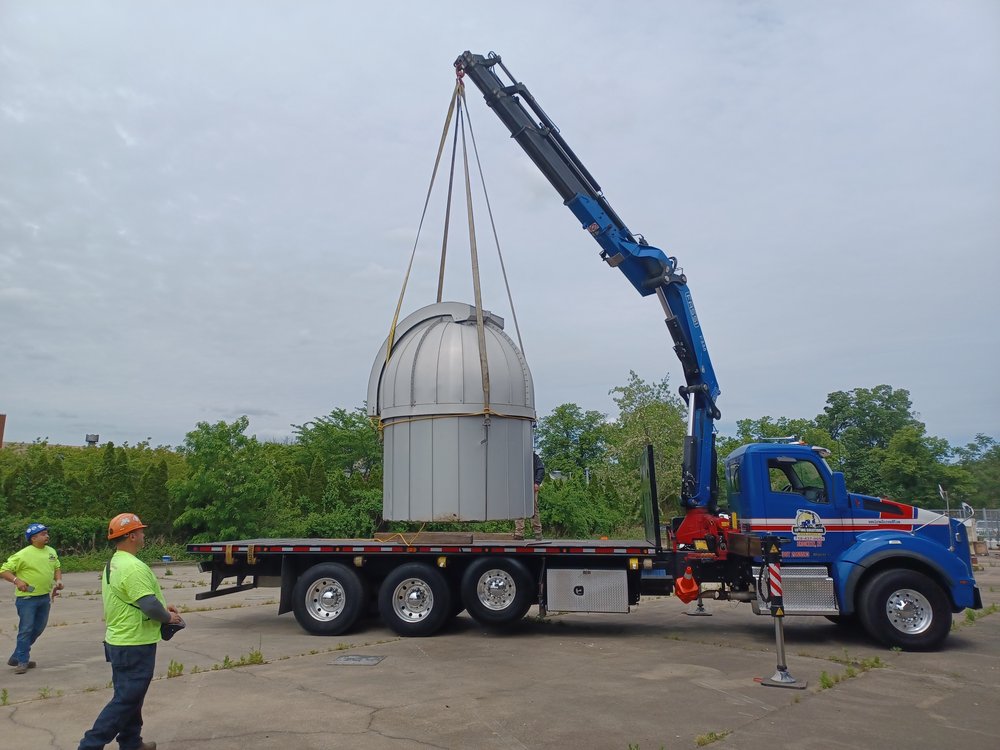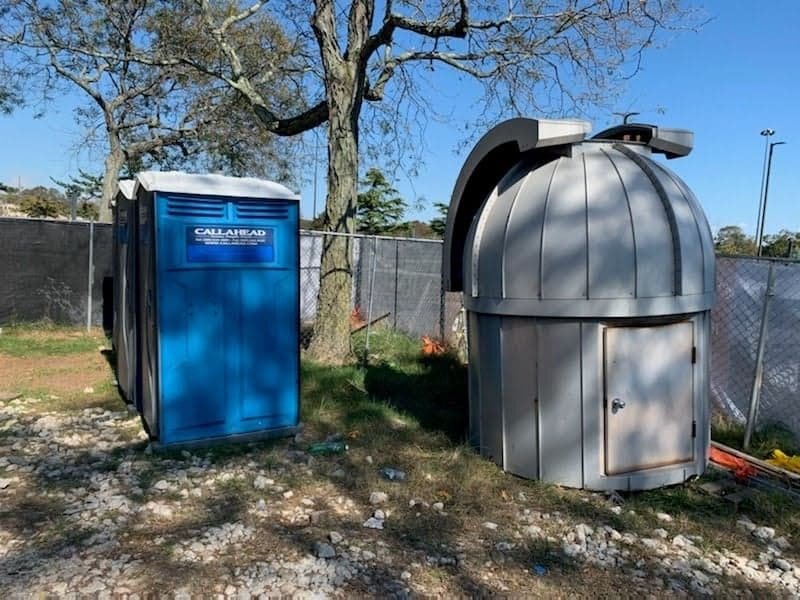NYC’s 1st public observatory is coming to the Bronx
Jan. 18, 2024, 12:37 p.m.
The Amateur Astronomers Association plans to break ground on the observatory in March and open it to stargazers later this spring.

New York City’s first free observatory is coming to a Bronx park, and organizers expect to open it to stargazers as soon as this spring.
The Amateur Astronomers Association and the city parks department have agreed to install a small aluminum observatory at Jerome Park on Goulden Avenue, near the Bronx High School of Science. The 800-pound cupola — or dome — that will crown the structure sat atop a building at Nassau Community College on Long Island for more than 40 years, until 2019, when the school replaced it with a green roof and six open-air telescopes. The association hauled the dome off last spring with the help of a boom truck.
Now, the association is on the verge of realizing one of its long-standing goals: opening New York City’s first fully public stargazing facility.
“There were some comments by people who said, 'why are you putting an observatory in the Bronx?'” said Bart Fried, executive vice president of the Amateur Astronomers Association. “All they're thinking is, ‘oh, you know, you can't see anything from New York,’ which is baloney because we've been observing all around New York for almost a century now.”
The observatory, which will sit on the banks of the Jerome Park Reservoir, isn't much bigger than a port-a-potty. The 9.5-foot high, 6.5-foot-wide structure can comfortably fit two or three people. Its dome will house a powerful Celestron Edge HD telescope capable of providing stargazers with views of everything in our solar system, such as comets, asteroids, the sun and all the planets, including the dwarf planet Pluto.
“Once we start doing some astrophotography, I'll say almost the universe is the limit,” Fried said. “There are literally thousands of objects that can be imaged from New York City and those include a multitude of galaxies, star clusters, gaseous nebulae and really everything and anything in the universe.”
The project has the parks department's approval, and officials said the department is finalizing its agreement with the Amateur Astronomers Association, which will run the observatory.
Fried said the group plans to break ground in March and that construction should only take a month. He noted the association had hoped to start construction last May but gaining the city's approval took longer than expected despite support from the local community board and the city's Public Design Commission.
“We anticipate that construction can occur in the spring, after an agreement is finalized and a contractor is selected,” parks department spokesperson Gregg McQueen told Gothamist via email.

The $100,000 astronomy complex will be solar-powered and fitted with screens on its exterior that project the telescope’s view. Organizers said the observatory’s programming will include weekly small public viewings for a handful of participants, and occasional large events where additional telescopes will be positioned around the dome.
The Amateur Astronomers Association says it will fund, maintain and operate the observatory, which will be open to the public seven nights a week — free of charge. The observatory’s cost was funded by public donations and a grant from the Jay Pasachoff Trust. Bronx Science students will have exclusive access for their own programs during school hours.
“Amateur Astronomers Association has been working for a lot of years trying to get a public observatory of some kind in New York City, so this is kind of a big moment,” said science historian Trudy E. Bell, who is working on a two-volume encyclopedia on 19th-century American observatories and telescopes. “They’re not only interested in history. From their view, use is the highest form of conservation — and exciting young people.”
As part of the project, the association plans to plant new trees nearby and build a 130-foot-long ADA-accessible ramp and a 14-foot pavilion for visitors.
“There's an awareness now that the night sky is a precious resource and it's disappearing, the dark night sky,” Bell said. “It's disappearing because of city lights and all the tens of thousands of satellites being launched.”
NYC’s first public observatory is running out of time to find a home